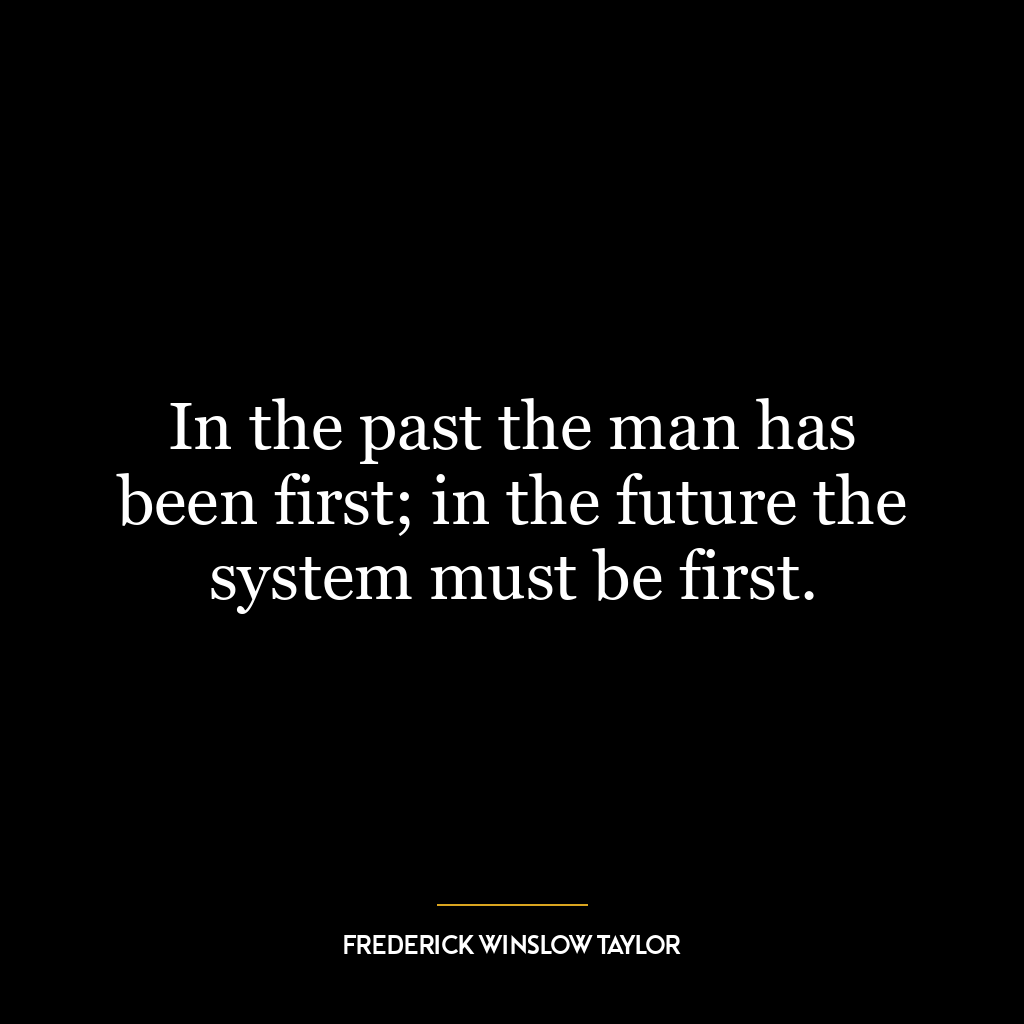Frederick Winslow Taylor Quotes
- Engineer
- USA
- 1856
Frederick Winslow Taylor (1856-1915) was an American mechanical engineer and management consultant who is considered to be the father of scientific management. He is best known for his book The Principles of Scientific Management (1911), which laid out his theories on how to improve industrial effic…Read More
Frederick Winslow Taylor (1856-1915) was an American mechanical engineer and management consultant who is considered to be the father of scientific management. He is best known for his book The Principles of Scientific Management (1911), which laid out his theories on how to improve industrial efficiency. Taylor’s ideas revolutionized the way factories and businesses were managed, and his work had a major influence on the development of the modern industrial world. He also developed the concept of time and motion studies, which sought to optimize the efficiency of workers by analyzing their movements. Taylor’s work was highly influential in the fields of industrial engineering, management, and labor relations.Read Less
Frederick Winslow Taylor (1856-1915) was an American mechanical engineer and management consultant who is considered to be the father of scientific management. He is best known for his book The Principles of Scientific Management (1911), which laid out his theories on how to improve industrial efficiency. Taylor’s ideas revolutionized the way factories and businesses were managed, and his work had a major influence on the development of the modern industrial world. He also developed the concept of time and motion studies, which sought to optimize the efficiency of workers by analyzing their movements. Taylor’s work was highly influential in the fields of industrial engineering, management, and labor relations.
Frederick Winslow Taylor Career Highlights
Frederick Winslow Taylor was an American mechanical engineer who is widely recognized as the father of scientific management. He is best known for his pioneering work in industrial engineering and management, which revolutionized the way businesses operate and led to significant improvements in productivity and efficiency.Born in 1856 in Philadelphia, Pennsylvania, Taylor began his career as an apprentice machinist at a small pump manufacturing company. He later went on to study mechanical engineering at Stevens Institute of Technology and worked at various manufacturing companies before joining the Midvale Steel Company in 1878.
Key Contributions by Frederick Winslow Taylor
Taylor’s most significant contribution to the field of management was his development of the scientific management theory. This theory aimed to improve efficiency and productivity in the workplace by applying scientific principles to management practices. Taylor believed that by analyzing and optimizing every aspect of a worker’s job, productivity could be greatly increased.He also introduced the concept of time and motion studies, which involved breaking down tasks into smaller, more efficient movements to eliminate wasted time and effort. This approach led to significant improvements in productivity and became a cornerstone of modern industrial engineering.
What Sets Frederick Winslow Taylor Apart
What sets Frederick Winslow Taylor apart is his relentless pursuit of efficiency and productivity. He was a firm believer in the idea that there is always a better way to do things and was constantly seeking ways to improve processes and systems. His scientific approach to management was groundbreaking and has had a lasting impact on the way businesses operate.
Takeaways
Taylor’s work has had a profound influence on modern management practices and continues to be studied and applied in various industries. His emphasis on efficiency and productivity has helped businesses achieve higher levels of success and has paved the way for the development of new management theories and techniques. Taylor’s legacy serves as a reminder that continuous improvement and innovation are essential for success in any field.










